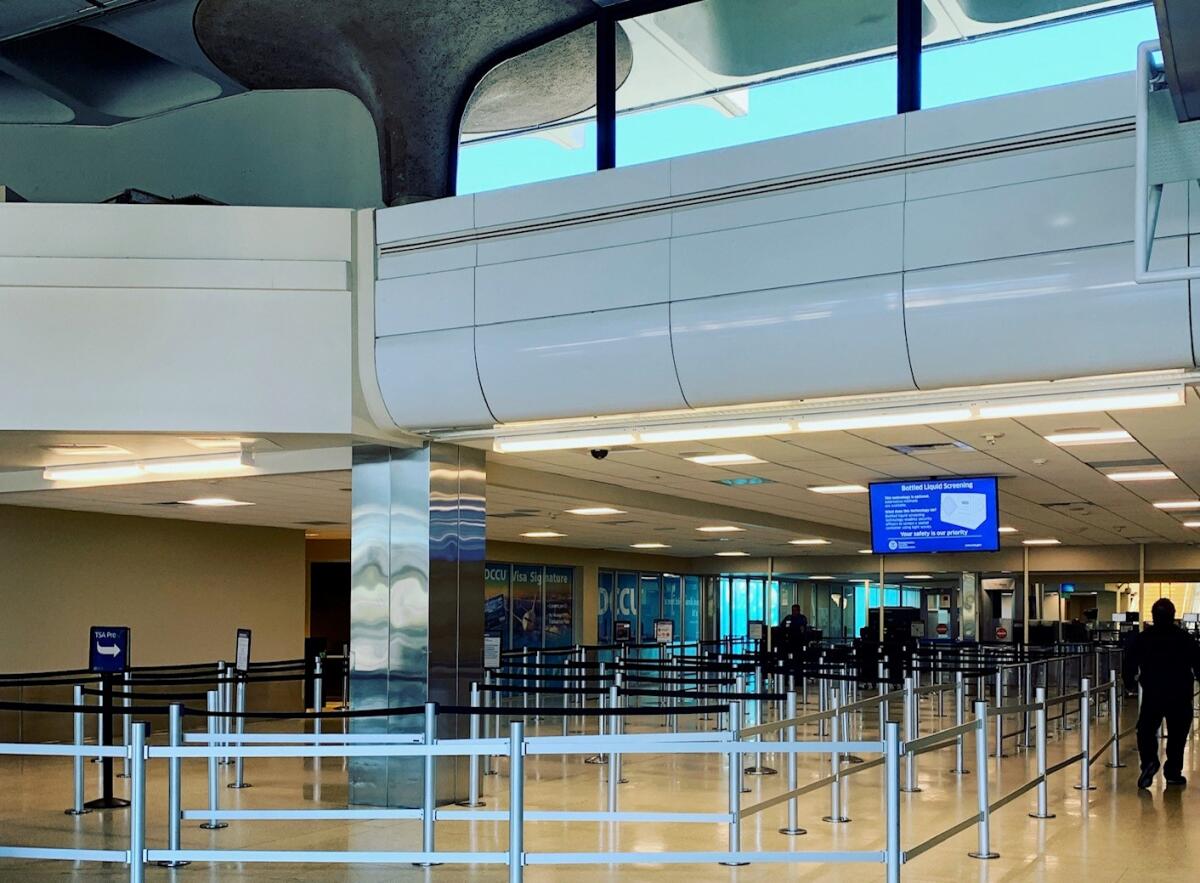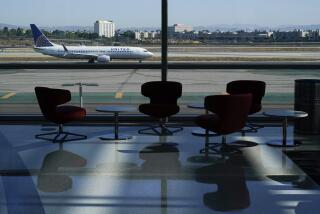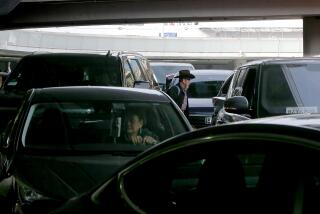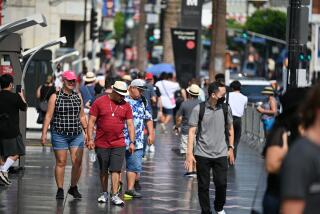San Diego airport declares local emergency as passenger traffic dives 96% in coronavirus outbreak

SAN DIEGO — Following the lead of other local agencies, the San Diego airport board Thursday declared a local emergency in response to the COVID-19 pandemic, which has caused passenger traffic to plunge more than 90%.
While San Diego International Airport remains open for business, it is largely empty, with hundreds of canceled daily flights, no lines for security screenings, and most food and beverage concessions closed. As airport officials grapple with steep declines in what are normally robust revenues, they are having to sharply cut expenses and weigh whether to delay major capital improvement projects such as the $3-billion plan to expand Terminal 1.
“As you know, the COVID-19 has had a tremendous impact on the aviation industry,” said San Diego Regional Airport Authority Chief Executive Kim Becker. Passenger traffic has been greatly reduced nationally “and at our own airport is down 96% from the same week last year.... Because so much of the Airport Authority’s revenue depends on passengers flying, this has obviously had a significant effect on revenues.”
With the emergency declaration, the airport CEO will have the authority to take necessary measures to not only provide for the safety of the public and airport employees but to also secure needed supplies and alter already approved contracts.
Airport officials said Thursday they are still moving forward with the planning process for the Terminal 1 expansion, which would add 11 gates as part of a new terminal. The start of construction had been planned for late next year.
But as the Airport Authority learns more in the coming months about the financial outlook for air travel and expected passenger volumes, it will advise the board on whether it needs to “make a decision, go or no go” on the project, Becker said.
Estimated revenue and passenger declines presented by the Airport Authority on Thursday paint a stark picture of what’s ahead for a much-contracted travel landscape. Where airport officials had expected nearly 13 million passengers to be taking off on flights in the coming fiscal year, they are now predicting just half that.
Non-airline revenues, such as concession and rental car income, are forecast to be down $55 million, or 33.7% compared with what had been originally budgeted, and passenger “facility charges,” are expected to fall by as much as $27 million, or 53% compared with what had been expected.
“Airlines have reduced schedules, and even when they do have scheduled flights, many of those are being canceled — about half of those,” said Scott Brickner, the Airport Authority’s chief financial officer. “The most recent flight schedules for May are down 54% vs the prior year and we do expect there will be some further cuts.”
Responding to requests for payment deferrals from the airlines and its concessionaires, the airport has offered the airlines three months of deferred billing amounting to $25 million and for its tenants, including rental car operators, three months of deferred payments, amounting to $13 million. The airlines would have until the fall to repay what is due, while the tenants would have six months, beginning in July.
In response to what is anticipated to be a continued slowdown in travel, the Airport Authority is aggressively cutting costs, with an estimated savings of $22 million in the coming fiscal year, Brickner said. It also has postponed for now a number of its improvement projects totaling more than $200 million.
To help offset the plummeting revenue airports are facing across the country, the federal government has extended a financial lifeline, appropriating $10 billion in emergency funding. The San Diego airport, it was announced this week, will be getting $91 million, which can be used for capital expenditures, operating expenses including payroll and utilities, and airport debt payments.
Weisberg writes for the San Diego Union-Tribune.
More to Read
Sign up for Essential California
The most important California stories and recommendations in your inbox every morning.
You may occasionally receive promotional content from the Los Angeles Times.












